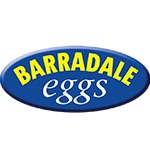Having looked at the original eggs, perhaps, at the beginning of a New Year we should briefly remind oneself of the virtues of the chicken egg. It is a healthy, natural wholefood that contains a wide range of important nutrients. It is affordable and versatile, and can he eaten every day of the week. This is an accepted true fact now, even for those who are at increased risk of heart disease. Various dietician clinics around the world also say an egg a day is good for diabetics.
Protein
The egg contains a “complete” protein, ie one which contains all the essential amino-acids. Weight-for-weight, eggs provide the highest quality protein of all foods. It is digestible and provides satiety.
Fats
A Medium egg has about 4g of fat, of which, 1g is saturated and 2g unsaturated.
The fats contain the fat-soluble vitamins.
Vitamins
Folate for growth and maintenance of healthy cells. Pantothenic acid (B5) release energy. Vit. B12 for blood formulation and brain and nerve function. Vit. A for eye health and growth. Vit. E acts as an antioxidant to help protect against disease. Thiamin converts carbohydrates to energy. Vit. D for bone health. Biotin utilises fats, proteins and carbohydrates in cell metabolism. Choline aids liver, heart and brain function.
Minerals
Selenium acts as an antioxidant in protecting immune system. Iodine maintains function of thyroid. Phosphorous for teeth and bone health. Zinc promotes wound healing. Calcium for bones and teeth.
Although they often think they don’t need as much to eat, in fact, the need for many nutrients is greater in older people than in younger.
These especially include protein, Vit. D, Vit. B12 and Lutein.
Over the coming months, we will expand on the many and different roles eggs play in the nutrition of all groups.
Remember the old saying “When there’s an egg in the house, there’s a meal in the house.”








